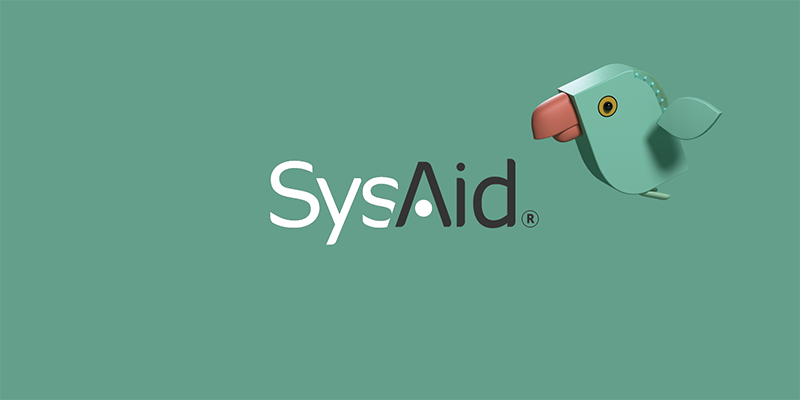Why Can’t Our Customers Be More Like Us?

Why do we IT service management (ITSM) people have trouble understanding and predicting how our customers and other colleagues in the business will behave?
Really understanding the customer’s perspective requires more than good intentions. On occasion, our own attitudes and preconceptions get in the way. Sometimes it feels like we’re struggling to understand a foreign language, and there is a reason for that – in a way, that’s exactly what is happening. Our own opinions can deflect us from accurate observations, seeing a familiarity that isn’t really there.
A Language Lesson: False Friends
When we see familiar things, we relax our guard, trust our instincts, and make presumptions. This can cause trouble. An example is false friends between languages – we see or hear a word or phrase in another language that is very similar to one in our own language, but it means something very different. Sometimes it’s just amusing. Doors labelled in English are a nightmare to Portuguese speakers, for example: if a sign says “push” they are more likely to pull it, fooled because the Portuguese word for ”pull” is ”puxe”, pronounced ”pushay”. You can understand the confusion.
Other examples can hurt more than your pride – many Dutch words mean what they sound like in English, so see ”fietspad” and you might presume fiets = feet, pads = path and you stride confidently along what must be the footpath. Good logic but actually ”fiets” is bicycle and you are walking on the bike track; it will be your fault when a fast Dutch bicycle hits you. Yikes!
It isn’t just languages that fool you this way, as you may have noticed when travelling by air in recent years. Every airport must be equally concerned to prevent dangerous items being carried on board, and every airport has similar looking equipment to find metals, liquids and other dangerous stuff. You may have gone through security at the airport with your shoes on, but when changing planes a few hours later, you are told to take those same shoes off before passing through what looks like an identical piece of detection equipment. Familiarity doesn’t necessarily deliver knowledge.
False Friends in ITSM
It isn’t just foreign languages that can lead us astray: confusion and deception can affect us in our work environment as well. In fact, it affects service providers, customers, users, and probably just about everyone else too. Cultural factors drive this when we supply services across cultural boundaries. Those boundaries could be linguistic, geographical, generational, functional specialism – or a mix of them all.
These kinds of false friends can present themselves in a range of ways:
- Business jargonmeans words acquire very specialist meanings within professional areas. Think what we (ITSM people) have done with words like “problem” and ”incident”. Upon hearing our customers talk about problems, we shouldn’t presume they mean what we mean. And those customers will have their own specialist terms that we might hear and think are used in their everyday sense.
- Behaviour and reaction to situations can fool us too.Warning messages that would stop an IT professional in their tracks could just be seen, and ignored, by a customer with a different perspective. You might see ”insecure connection” as a reason not to proceed; others may just see the words but not the implications. The picture here – taken in a small company’s kitchen – shows that just asking nicely doesn’t always deliver the behaviour you wish to see. Just because you would respond to a polite request doesn’t mean others will; maybe more extreme measures are needed for some people.
- Expecting others to care about what you do.Drivers see a wide range of attitudes to speed limits. Some always and immediately adjust their speed to comply, others ignore them altogether, while many will compromise – driving somewhat over the limit, but not what they see as too much over. In fact, telling people to do something doesn’t necessarily mean it will happen, as the picture above shows. It is a false assumption to think others will follow an instruction just as you would.
Preventing Damage – Some Actions to Adopt
It is possible to avoid the effect of being fooled by misconceptions and misinterpreting other’s attitudes. Here are six ideas that might help you:
- Understand that these situations exist and will happen to you. Realize that your customers think differently, with their own preconceptions and expectations. Try not to presume you know what people mean, that they will know what you mean or behave as you would.
- Learn key aspects of your customers’ behavior and language. Talk with – and listen to – them; see how things have gone in the past and learn from that. Build those differences into your knowledge management system so your team and your colleagues are warned and prepared. The most powerful tool is being able to admit you don’t know their world and being willing to ask what things mean.
- Don’t fall into the trap of unconsciously imposing your views on others, so called accidental cultural imposition, where you presume others see the world the way you do.
- Understand where you and your people act in a non-standard way, be aware of the specialist jargon and attitudes that you have. Try to remove jargon; a glossary might help, but using widely understood words is better. At the very least, be aware of the terms that might confuse (incidents, problems) and be expecting issues.
- Find common ways to establish and maintain communication channels. Very often it is social communication that exposes difficulties in business communication. Don’t underestimate the benefits of treating your customers as people, rather than the last part of your service delivery process.
- Recognize communication failure as an accepted cause within the problem management system. It then becomes something that can be addressed and improved, but only when it is recognized as something subtler than “user incompetence”. Far too often, user blame is the attitude, rather than seeing an opportunity for clarification.
Of course, it isn’t just a case of you being fooled by your customers; you will probably be confusing your suppliers too. Those suppliers might be blaming you for things that can be solved by conversation and mutual understanding. Could you get a better service if you worked on a shared understanding with both your customers and your suppliers?
Perhaps the real key aspect is to be honest about your own preconceptions and attitudes, and this will help you to recognize them in others. What do you think?
Did you find this interesting?Share it with others:
Did you find this interesting? Share it with others:









